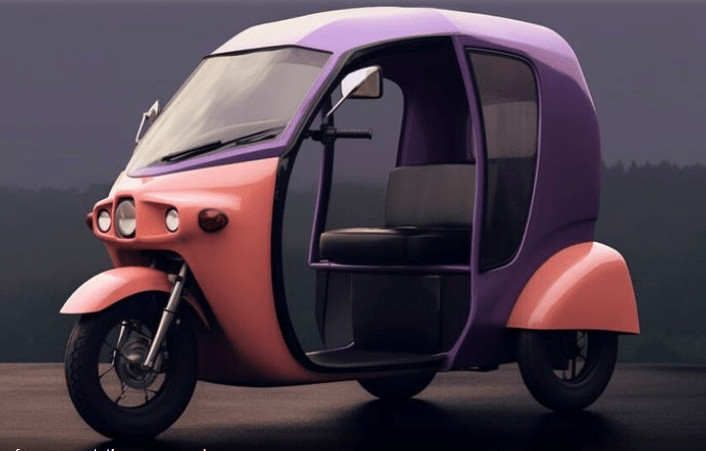
Under a contract manufacturing arrangement, the two will collaborate to create an electric three-wheeler TVS that Hyundai can manufacture locally; Hyundai will handle engineering and design.
Hyundai Motor India Ltd. (HMIL) intends to enter the fast-growing electric last-mile mobility industry and hasten the shift to zero-emission vehicles in order to be more Indian in India. Sources state Hyundai is in talks with TVS Motor and will probably team up with a local company to enter the three-wheeler and quadricycle market.
Under a contract manufacturing agreement, the talks center on possible cooperation for the joint development of an electric three-wheeler TVS that can be built domestically. Hyundai will perform the design and engineering.
Though Hyundai’s micro-mobility vehicle architecture is expected to be also shared with the South Indian automaker, much as how the Indian company has access to BMW’s architecture under its two-wheeler manufacturing tie-up with the German brand, the precise contours of the partnership are yet unknown.
Hyundai intends to present its last-mile mobility idea cars at the Bharat Mobility Show. TVS Motor, meantime, has also been looking at the electric last-mile mobility market and intends to introduce its own three-wheeler in 2025.
Neither TVS Motor nor Hyundai Motor answered an email for an explanation of these changes.
Entering the last-mile mobility sector might also give Hyundai a foundation to launch its app-based platform—akin to Shucle—into the Indian market. Hyundai Motor Group debuted the demand-responsive ride-pooling app Shucle in March 2021.
Email: admin@autolob.com
Hyundai’s AI research lab,Shucle started operations in Sejong City, South Korea as an integrated mobility platform providing adaptable routing depending on real-time demand, addressing local transportation issues.
Reflecting its function in offering circular shuttle services inside designated zones, the name “Shucle” combines “Shuttle” and “Circle.” Using Shucle, Hyundai hopes to join three-wheelers, India’s fastest-growing electric vehicle market.
With over 40% market right now, Mahindra & Mahindra is the segment leader; Bajaj Auto is fast growing in that area. Additionally able to carve out a space for themselves are startups like AltiGreen and Euler. Two other big firms in the last-mile mobility space trying to have influence are Ola Electric and Hero MotoCorp.
Following the October 2024 listing of the Indian subsidiary on the National Exchange, Executive Chair of Hyundai Motor Group Euisun Chung visited with Prime Minister Narendra Modi of India.
Then, according to an official Hyundai Motor India release, the two had had extensive conversations about the direction mobility is headed. Given the varied market conditions of India and its reforming attitude, Executive Chair Chung underlined the Group’s top priority of closely engaging with that nation.
They talked about possible cooperation between India and Hyundai Motor Group and the growth of the Indian mobility sector. The fresh last-mile mobility project might have sprung out of recent conversations with the Prime Minister.
With every second unit sold in India as a zero-emission vehicle, the electric three-wheeler market keeps seeing the quickest shift to EVs.
Comprising passenger-transporting rickshaws and cargo-delivery models, this market achieved cumulative sales of 631,855 units, up 20%, in January-November.
Although the 650,000 milestone is probably reached in the first two weeks of December, how near the section comes to the 700,000-unit threshold is still to be seen.
Lower cost of ownership (compared to IC engine, CNG, and LPG options), improved financing options, the FAME-EMPS and PM E-Drive incentive schemes, more product choice, and rising demand from fleet and last-mile logistics operators all help to explain the steady rise in sales.
